Some books leave us free and some books make us free.
~ Ralph Waldo Emerson
If you are a lover of book lists and share my obsession with collecting these lists, here’s one more to add to your collection. Last year I tried something new. In addition to selecting one guiding word, I identified twelve words that served as a theme for each month.
Since I also wanted to improve my writing, I added craft books. Although fiction rarely makes my list, I made an effort to read more in 2021.
I gave myself permission to stop reading books I didn’t find engaging. A few of these were interesting but weren’t right for the moment. Sometimes the topic, content, or writing style has to wait for its own time. Maybe they will find their moment in 2022.
A Few of the Best
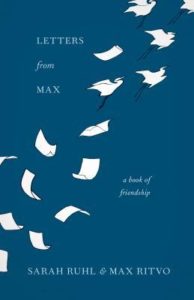 Letters from Max: A Book of Friendship
Letters from Max: A Book of Friendship
Sarah Ruhl and Max Ritvo
In this exchange of poems and thoughts between teacher and student, between two poets, I experienced Zelda Fitzgerald’s words, “Nobody has ever measured, even poets, how much a heart can hold.”
Over four years, Sarah Ruhl, the teacher, and Max Ritvo, her student, wrote letters filled with the most mundane but riveting words. I highlighted so many, but some of the most beautiful capture the meaning of life, love, and how we face our inevitable end.
From Sarah: “It is so hard for children to stop playing and so hard for adults to begin playing, and what if the afterlife is all play and a place where love is not in the least disappointing.”
From Max: “All spirituality asks is that we put ourselves in situations that feel holy. That take our breath away and make us go: I can’t believe my luck to be part of something as beautiful as life.”
Toni Morrison
Beloved was one of those books I had put off reading, but the time was right in 2021. Morrison’s story, passion, and her gift of words kept me spellbound. The reality of life in slavery left me aching.
I marveled at descriptions like, “loneliness wore her out.”
As a mother, I understood this mother’s point of view.
“A child is a child. They get bigger, older, but grown? What that supposed to mean? In my heart it don’t mean a thing.”
Braiding Sweetgrass: Indigenous Wisdom, Scientific Knowledge and the Teachings of Plants
Robin Wall Kimmerer
The intersection of Kimmerer as a scientist and Citizen Potawatomi Nation allowed me to see the world through a new lens and understand the interrelationship of the living world more deeply. Her teaching opened the door to seeing plants, sky, land, and human as inextricably connected because the land is the real teacher. All we need as students are mindfulness.”
“I want to stand by the river in my finest dress. I want to sing, strong and hard, and stomp my feet with a hundred others so that the waters hum with our happiness. I want to dance for the renewal of the world.”
Brené Brown
I’ve read all of Brown’s books, and every one led me down a path of honesty, vulnerability, and an appreciation of who I am. As a recovering perfectionist, the title alone was enough to pull me in and through the ten guideposts for living a wholehearted life.
I’ve learned that wholehearted living is a process and that “practicing courage, compassion, and connection in our daily lives is how we cultivate worthiness. The key word is practice.”
Brown’s research and story isn’t a self-help book. As she explains, “Living and loving with our whole hearts is not just about self-work. It’s how we change the world.”
Rutger Bregman
Is humankind innately good or evil? Does society transform us into our better selves, or does it pull us away from our natural goodness? Bregman takes the reader through 200,000 years of history, theories, and arguments that explore both sides of each question. He confirmed what I’ve always believed, “Kindness is catching.”
“To believe people ae hardwired to be kind isn’t sentimental or naive. On the contrary, it’s courageous and realistic to believe in peace and forgiveness.”
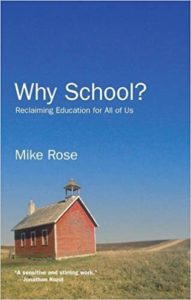
Why School: Reclaiming Education for All of Us
Mike Rose
By page five, I wanted to have a one-on-one conversation with Mike Rose about education. His insights and experiences resonated with my own. When I searched for his contact information, I sadly discovered that he had died just a couple of months before finding his collection of essays on Why School.
In each chapter, I re-discovered my passion as an educator and, as Rose explored, “the purpose of education. The many faces of intellegence, learning,intelligenceThe beauty and accountability of working with people. The power of hope. The importance of rich and varied pathways to opportunity. An affirmation of public responsibility and public institutions.”
“If we think that whole categories of people—identified by class, by occupation—are not that bright, then we reinforce social separations and cripple our ability to talk across our current cultural divides.”
Charles Martin
Fiction books must tell a compelling story and leave me wanting more of the author’s words. You know you have found that type of book when you want to see how the story ends, yet regret turning the last page.
Part mystery, love story, and discovery of oneself, Martin’s descriptions and dialogue linger in my mind.
“Never settle for less than the truth,” she told him. But when you don’t even know your real name, the truth gets a little complicated.
“Identity does not grow out of action until it has taken root in belonging.”
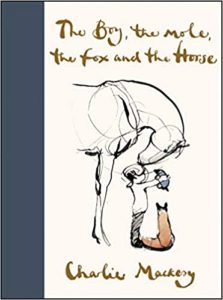 The Boy, the Mole, the Fox, and the Horse
The Boy, the Mole, the Fox, and the Horse
Charlie Mackesy
I first found Charlie Mackesy on Twitter and instantly fell in love with his art, message, and simple conversations between a boy, a mole, a fox, and a horse. Every page reveals some life lesson.
“What do you want to be when you grow up?”
“Kind,” said the Boy.
Ozan Varol
I started reading this book when it came out in early 2020, but I put it aside as COVID raged through our communities and my mind. I picked it up again in November. Sometimes, a book has a time of its own, and I was ready for the messages and insights.
I also subscribe to his newsletter, Weekly Contrarian, where hardly a week passes without rich morsels of food for thought. My journal is full of Varolisms.
Not only did I learn about the Mars Rovers (a project Varol worked on in the early years), but I gained a deeper understanding of thinking critically and creatively.
“Thinking like a rocket scientist is to look at the world throiugh a different lens. Rocket scientists imagine the unimaginable and solve the unsolvable. They transform failures into triumphs and constraints into advantages. They view mishaps as solvable puzzles rather than insurmountable roadblocks. They’re moved not by blind conviction but by self-doubt; their goal is not short-term results but long-term breakthroughs. They know that the rules aren’t set in stone, the default can be altered, and a new path can be forged.”
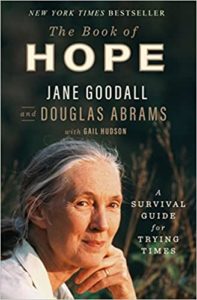 The Book of Hope: A Survival Guide for Trying Times
The Book of Hope: A Survival Guide for Trying Times
Jane Goodall and Douglas Abrams
Jane Goodall’s wisdom closed my year of exploring hope during these exceptionally trying times. Douglas Abrams allows the reader to sit with Jane Goodall, soaking in her energy and hope for the natural world—and humankind — capturing their conversations. The combination of her life stories and Abram’s research brought hope into perspective. Hope requires action, and the work of the Jane Goodall Institute offers one example of how one person working with many others can make a difference. Jane’s mantra? “Together we can. Together we will.”
“Hope is what enables us to keep going in the face of adversity. It is what we desire to happen, but we must be prepared to work hard to make it so.”
Some of the Good
I read more in 2021 than in several years, but I still didn’t get to every book that sparked my curiosity. Book choices abound. Here are a few other good reads from 2021.
- Ursula LeGuin, Steering the Craft, reminded me that “Ultimately you write alone.”
- “What good could come from grappling forever with “could have beens?” In These Tangled Vines, Julianne MacLean leads the reader through secrets, acceptance, and finding a family.
- I spent much of the year learning more about photography. Based on the BBC television series, John Berger’s Ways of Seeing looks at art in new ways that will always influence how I make photographs.
- In The Nature of Nature: Why We Need the Wild, Enric Sala explains in clear and imploring language the role of ecosystems, biospheres, and our role in protecting them—for our survival.
- Kristen Neff’s work has surfaced in numerous places across my reading. I knew it was time to learn firsthand about Self-Compassion: The Proven Power of Being Kind to Yourself. I appreciated her research and personal stories.
Started but Unfinished…
I am meandering through two interesting topics, music, and the human body. Chapter by chapter, I’m making my way through This Is Your Brain on Music. Then I’ll tackle Daniel Livitin’s newest work, Successful Aging—a timely topic.
Bill Bryson’s The Body: A Guide for Occupants covers every aspect of the human body from the outside in and from beginning to end. We are an amazing species.
And the rest?
I’m still working on a complete list of everything I read in 2021. Other writers have suggested keeping a journal or some method to track your reading. Over a lifetime, I’ve lost track of what I read and sometimes wish I could go back and revisit my favorites.
But what were those favorites? Books sitting on my shelves serve as handy reminders, but books checked out from the library or borrowed from friends sit waiting somewhere in the catalog of my brain for retrieval.
Better record-keeping would certainly make sharing easier and foster more writing ideas. I’ll add that to my list of intentions for 2022.
My final book for the year came from my best friend who recommended J.K. Rowling’s, The Christmas Pig, and I found hope in one last story of life and living.
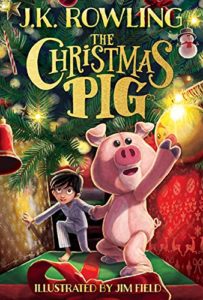 “You’ve just got to believe.”
“You’ve just got to believe.”
“Keep hoping.”
Send me a note. Share with others. Get more at Inspiring #yourbest.
And always—be and become #yourbest.
Photo collage created on Canva
January 11, 2022
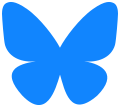


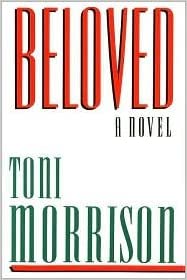 Beloved
Beloved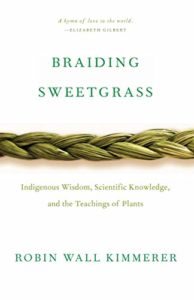
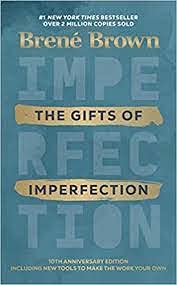 The Gifts of Imperfection
The Gifts of Imperfection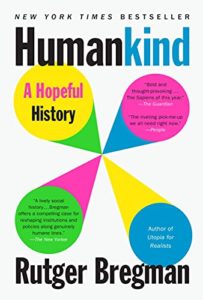 Humankind: A Hopeful History
Humankind: A Hopeful History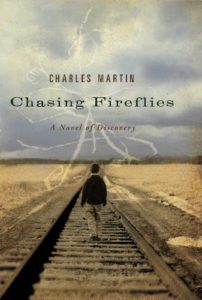 Chasing Fireflies
Chasing Fireflies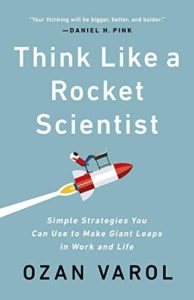 Think Like a Rocket Scientist
Think Like a Rocket Scientist
Leave A Comment